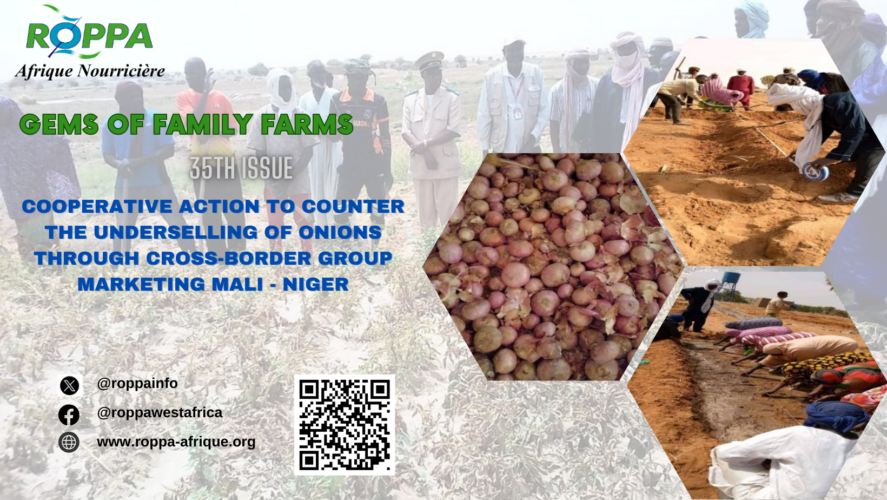In the heart of the Sahelian region, where climatic and economic challenges shape daily life, a beacon of hope shines in Bourra, Mali. It’s the story of a radical transformation initiated by determined agro-pastoralists aiming to change their destiny. This epic, rooted in the fertile lands of Bourra, is a model of cooperation and innovation, revolutionizing the commercialization of onions in a Mali-Niger cross-border dynamic. The protagonists are members of the Bourra Maraîchers Cooperative Society (SCAMB). Faced with a volatile onion market and harmful selling practices, these farmers decided to take their future into their own hands. Their vision? Utilize the strength of cooperation to stabilize prices and ensure fair compensation for their hard work.
SCAMB, more than just a cooperative, has become a beacon of innovation. By adopting improved onion conservation techniques, especially for the “Violet de Galmi” variety, the producers have managed to extend their products’ shelf life, ensuring constant market availability. This strategy has increased their income and stabilized the local and cross-border markets.
The social impact of this initiative is equally impressive. Promoting cohesion among different communities, SCAMB has helped alleviate tensions between herders and farmers. It has also provided valuable opportunities for the region’s youth and women, enabling them to actively participate in the local economy and combat rural exodus.
Testimonials abound. Mahamadou, Seydou, Djibrilla Idrissa, Zeydaly Boubacar, and Hawa Sadou, all SCAMB members, share stories of transformation and success. Their accounts highlight not only the economic benefits but also the profound social impact of the cooperative. Thanks to SCAMB, they have improved their quality of life, invested in their children’s education, and even developed small businesses.
This success is not a stroke of luck but the result of well-thought-out strategy and hard work. SCAMB’s collective approach to marketing has created a sustainable and replicable model, paving the way for autonomy and prosperity.
In summary, Bourra’s experience is a shining example of what solidarity and innovation can achieve in the challenging context of Sahelian agriculture and stands as a symbol of resilience and agricultural innovation. This collective, inspiring, and fruitful adventure is a resounding testament to the potential of local initiatives in the sustainable development of rural communities.

